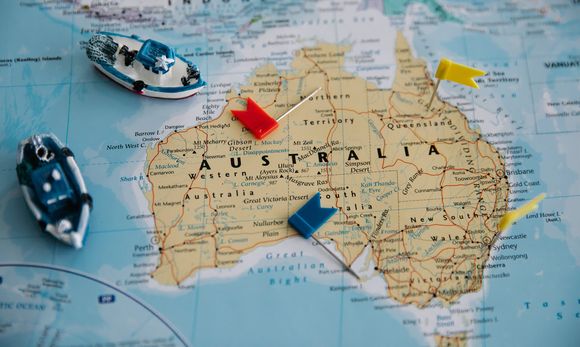
What You Need to Know About Working in Australia?
Are you considering moving to Australia for work? With its captivating landscapes, vibrant cities, and booming economy, it’s no wonder that many people are choosing to pursue their careers in this beautiful country. However, as with any other international move, there are certain things you need to know and understand before leaping. In this blog post, we will delve into the key information and insights you need to know about working in Australia. So if you’re ready to explore all that working in Australia has to offer, keep reading for a comprehensive guide on making your professional transition as smooth as possible.
Overview of the job market in Australia and current trend
The job market in Australia is diverse and continuously evolving, providing a range of opportunities for both locals and foreigners. According to recent statistics, employment rates have been steadily increasing in Australia. The most significant job growth has been in the healthcare and social assistance sector, followed by professional services and construction industries. Due to a shortage of qualified Australian workers, according to this article, the government is looking overseas to help plug the gap. This creates an excellent opportunity for international workers to find employment in various fields. Additionally, there has been a significant shift towards the gig economy and remote work, making it easier for individuals to secure flexible job opportunities.
Visa requirements for working in Australia
If you are not an Australian citizen or permanent resident, you will need a valid visa to work in Australia. There are several types of visas available for skilled workers, including the Skilled Independent Visa (subclass 189) and Employer Nomination Scheme (subclass 186). These visas require applicants to meet specific criteria, such as having relevant qualifications and work experience. The application process for these visas can be lengthy and competitive. However, there are also temporary work visas available for those who do not meet the requirements for permanent residency. These include the Working Holiday Visa (subclass 417) and Temporary Skill Shortage Visa (subclass 482). It is essential to thoroughly research and understand the requirements and fees for each visa before applying.
Popular industries and job opportunities in Australia
Australia is home to a wide range of industries, providing a diverse range of job opportunities for professionals. The healthcare sector is one of the fastest-growing industries in Australia, with a high demand for doctors, nurses, and other medical professionals. The mining industry also offers lucrative job opportunities, especially in Western Australia and Queensland. With the rise of digital technology, there is also a growing demand for skilled professionals in the IT and software development industries. Other popular industries include education, hospitality, agriculture, and finance.
How to create a strong resume/CV for the Australian job market
In Australia, a well-written and tailored resume/CV is crucial to securing a job. When creating your resume/CV for the Australian job market, highlight your relevant skills, qualifications, and work experience. Be concise and specific in describing your achievements and use industry-specific keywords to make your resume stand out. Include any relevant certifications or licenses you have obtained. Furthermore, follow the Australian standard resume format, which includes personal details, a career objective or summary, work experience, education and qualifications, and references. Finally, proofread your resume/CV thoroughly and ask a native speaker to review it for any errors or cultural differences.
Understanding workplace culture and etiquette in Australia
Australia has a relaxed and egalitarian work culture, where teamwork and collaboration are highly valued. It’s essential to demonstrate respect for colleagues at all levels, as well as communication skills and a willingness to learn. Punctuality is essential in the Australian workplace, so it’s important to arrive on time for meetings and appointments. It’s also common practice to address colleagues by their first names, even those in higher positions. Being mindful of these cultural norms can help you integrate into the Australian workplace and build strong professional relationships.
Finding accommodation
Finding accommodation is a vital aspect of working in Australia. The cost of rent varies depending on the location and type of accommodation you choose. Major cities like Sydney and Melbourne tend to have higher rent prices compared to regional areas. However, there are affordable options available such as shared apartments or rental properties outside of the city center. It’s important to research the different neighborhoods and their proximity to your workplace before deciding on a location. Some popular neighborhoods for professionals include Surry Hills in Sydney and South Yarra in Melbourne.
Working in Australia can be an exciting and rewarding experience, but it’s essential to prepare and understand the country’s job market, visa requirements, and workplace culture. This guide should provide you with a good starting point for your research and help you make informed decisions about working in Australia. Stay open-minded, be prepared for cultural differences, and embrace the new experiences that working in Australia has to offer. Good luck on your journey!
Sydney Unleashed is one of Australia’s premier entertainment publications exploring the latest in lifestyle trends. From Sydney’s finest restaurants, cafes and bars to the hottest in gadgets, products, and home entertainment, Sydney Unleashed is your one-stop lifestyle platform.
